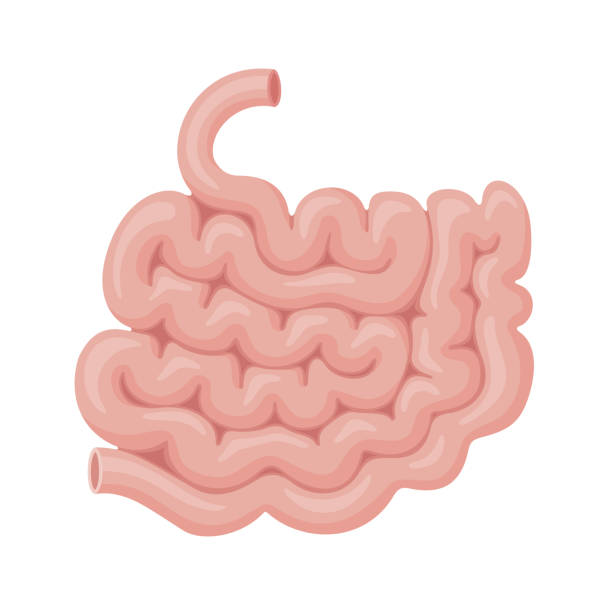 What organ is this?
What organ is this?
lungs
Which of the following are systems of the human body?
skeletal, respiratory, skin, muscular, digestive, hair, nails, circulatory, phalanges, cerebral
skeletal, respiratory, muscular, digestive, circulatory
How many bones are in the human body?
206
What system is responsible for digestion and food absorption?
Digestive system
Which of these diseases affect the respiratory system?
EPILEPSY
APPENDICITIS
ASTHMA
ANGINA
ALZHEIMER’S DISEASE
CROHN’S DISEASE
ARTERIOSCLEROSIS
BRONCHITIS
Asthma and Bronchitis
What organ is this?![]()
heart
Which of these is NOT part of the circulatory system?
a) veins
b) arteries
c) blood
d) saliva glands
d) saliva glands
List 3 negative effects that excessive screen time has on the human body.
e.g., childhood obesity, backaches, headaches, eyestrain, carpal tunnel syndrome, high blood pressure, etc.,
What system is responsible for transmitting signals between different parts of the body, and is made up of a collection of nerves and specialized cells known as neurons?
Nervous System
Which of these diseases affect the digestive system?
EPILEPSY
APPENDICITIS
ASTHMA
ANGINA
ALZHEIMER’S DISEASE
CROHN’S DISEASE
ARTERIOSCLEROSIS
BRONCHITIS
Appendicitis and Crohn's disease
What organ is this?

small intestine
List three parts of the digestive system.
e.g., throat, teeth, tongue, saliva glands, stomach, small intestine, large intestine
What are some things people can do to reduce the negative effects of excessive screentime on the human body?
e.g., less use of screen time, getting up and stretching, taking frequent breaks, going for a walk, etc.,
What system's main job is to move fresh air into your body while removing waste gases?
Respiratory system
Which of these diseases affect the circulatory system?
EPILEPSY
APPENDICITIS
ASTHMA
ANGINA
ALZHEIMER’S DISEASE
CROHN’S DISEASE
ARTERIOSCLEROSIS
BRONCHITIS
arteriosclerosis and angina
What organ is this?

stomach
Fill in the blanks:
The musculoskeletal system's primary functions include ________ the body, allowing _________ and protecting vital organs.
supporting, motion
Fill in the blanks:
Digestion is the breakdown of ______ into small molecules, which are absorbed into the body. This allows the body to move and maintains ______ and overall health.
food, growth
What system includes the heart, blood, and blood vessels?
Circulatory System
Which of these diseases affect the nervous system?
EPILEPSY
APPENDICITIS
ASTHMA
ANGINA
ALZHEIMER’S DISEASE
CROHN’S DISEASE
ARTERIOSCLEROSIS
BRONCHITIS
Epilepsy and Alzheimer's disease
What organ is this?
gallbladder
Fill in the blanks:
The circulatory system uses a network of arteries, ______, and capillaries, to carry _______ and carbon dioxide to the lungs and picks up oxygen.
veins, blood
The nervous system is a complex collection of _______ and specialized cells known as neurons. It's function is to transmit _________ between different parts of the body.
nerves, signals
What system is made up of bones of the skeleton, muscles, cartilage, tendons, ligaments, joints, and other collective tissues?
Musculo-skeletal system
Excessive sun exposure as a child can contribute to skin cancer in adults, but the sun provides us with vitamin D that makes are bones stronger and increases out resistance to many kinds of disease. How could you safely get the recommended one-hour a week of sunlight?
e.g.,
Choose the Right Time: The best time for sunlight is usually in the morning, before 10 a.m., or in the late afternoon after 4 p.m. This way, the sun is not too strong.
Wear Sunscreen: Before you go outside, put on sunscreen with a high SPF. It's like a protective shield for your skin.
Wear a Hat: A cool hat can keep the sun off your face and neck, especially if you're out during the sunny parts of the day.
Stay in the Shade: If you can, sit in the shade under a tree or an umbrella. This way, you still get some sunlight but not too much.
Short Time: You only need 10-15 minutes in the sun to get the vitamin D you need, so you don't have to stay out for a whole hour at once. It's better to do it a little bit each day.